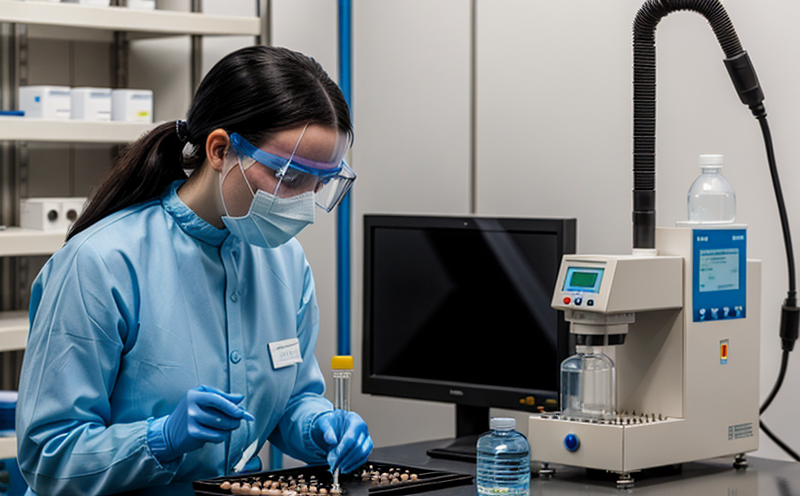DSC Thermal Characterization Testing
In the pharmaceutical industry, ensuring product quality and safety is paramount. One of the most critical tests in this regard is Differential Scanning Calorimetry (DSC) thermal characterization testing. This method provides detailed insights into a substance’s physical properties by measuring the difference in heat flow between a sample and a reference material as a function of temperature or time.
Thermal characterization using DSC helps identify various phases, transitions, and impurities within pharmaceutical compounds. It is particularly useful for understanding how materials behave under different temperatures, which is essential for process development, quality assurance, and regulatory compliance. This testing can detect subtle changes in the molecular structure of a substance that might indicate degradation or impurity.
The DSC technique involves heating or cooling a sample at a controlled rate while monitoring the heat flow into it. The resulting temperature-heat flow curve provides valuable information about phase transitions, melting points, glass transition temperatures, and thermal stability. These insights are crucial for optimizing manufacturing processes, ensuring product consistency, and meeting regulatory standards.
For pharmaceutical applications, DSC is used to characterize polymorphic forms of active ingredients, which can significantly impact the drug’s efficacy and safety. Different crystalline forms (polymorphs) may exhibit varying solubility, dissolution rates, and stability under different conditions. By identifying these forms through DSC, manufacturers can select the most suitable form for production.
The testing process itself involves several key steps: preparation of the sample, calibration of the instrument, running the test, and analysis of results. Samples are typically prepared in small pans or capsules to ensure accurate measurement. The instrument is calibrated using standard reference materials before each run to maintain precision and accuracy. After running the test, the data is analyzed to extract meaningful insights about the sample’s thermal behavior.
DSC testing is widely accepted across the globe for its reliability and repeatability. It plays a vital role in ensuring that pharmaceutical products meet strict quality standards set by regulatory bodies such as the FDA, EMA, and WHO. The results of DSC tests are often used to support product development, process optimization, and compliance with international guidelines.
Given its importance in the pharmaceutical sector, it is essential for laboratories specializing in chemical characterization to provide accurate and comprehensive DSC thermal characterization testing services. This includes not only performing the test but also offering expert interpretation of results and providing recommendations based on those findings.
Applied Standards
- ASTM E1247-20 Standard Practice for Simultaneous Differential Scanning Calorimetry-Thermogravimetry (DSC-TGA) Analysis.
- ISO 11358-6:2019 Determination of melting points by differential scanning calorimetry.
- Ph. Eur. 7.4.1.2 Determination of Melting Point by Differential Scanning Calorimetry.
Scope and Methodology
The scope of DSC thermal characterization testing in pharmaceuticals includes evaluating the thermal stability, melting points, glass transition temperatures, and phase transitions of active ingredients and excipients. This service is particularly valuable for identifying polymorphic forms of drugs, which can affect their solubility, dissolution rate, bioavailability, and overall performance.
The methodology involves several key steps: sample preparation, instrument calibration, data collection, and result analysis. Samples are prepared in small pans or capsules to ensure accurate measurement. The instrument is calibrated using standard reference materials before each run to maintain precision and accuracy. During the test, the sample is heated or cooled at a controlled rate while monitoring the heat flow into it. This process generates a temperature-heat flow curve that provides detailed information about the thermal behavior of the sample.
The results are then analyzed by expert scientists who interpret the data in the context of the specific pharmaceutical application. They provide recommendations based on these findings, which can be used to optimize manufacturing processes or improve product quality.
International Acceptance and Recognition
- Differential Scanning Calorimetry (DSC) is widely recognized by regulatory bodies around the world, including the FDA, EMA, and WHO.
- The technique is standardized through various international standards such as ASTM E1247-20 and ISO 11358-6:2019.
- Pharmaceutical companies worldwide rely on DSC for quality assurance and process optimization.





